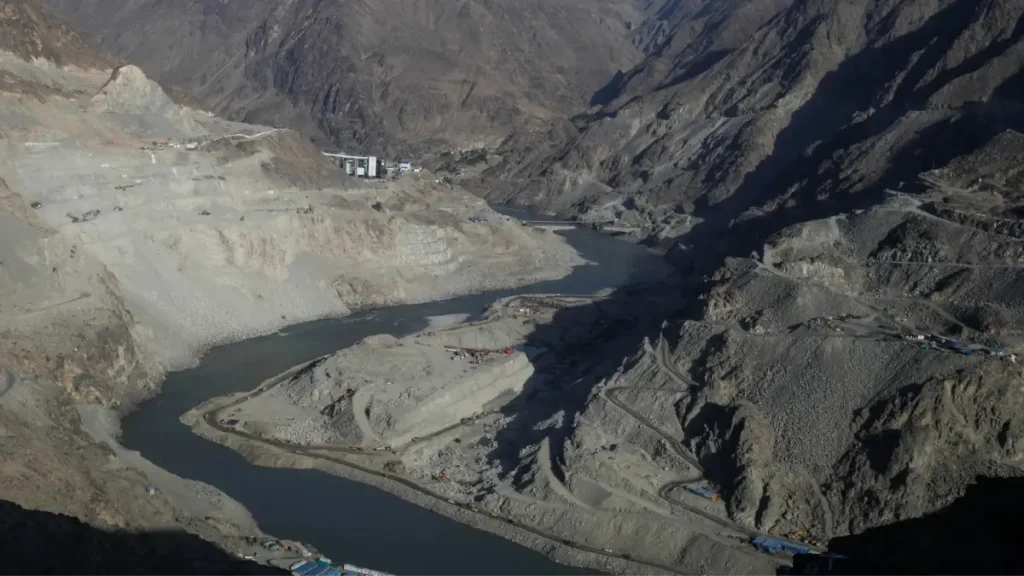The Permanent Court of Arbitration (PCA) has ruled in favour of Pakistan on key points relating to the Indus Waters Treaty (IWT). The court’s binding Award states that India must allow the waters of the Western rivers to flow for Pakistan’s unrestricted use.
The Hague-based tribunal issued the Award on August 8, 2025, and published it on its official website on Monday. The case was initiated by Pakistan in 2016 over disputes concerning India’s run-of-river hydroelectric projects on the Indus, Jhelum, and Chenab rivers.
According to the PCA, its decisions and those of a Neutral Expert are final and binding on both countries. It stressed that the exceptions to the general water flow rule — such as for hydroelectric generation — must strictly follow the treaty’s terms, not India’s own “ideal” or “best practices” standards.
The dispute focused on India’s dam designs that Pakistan argued violated IWT provisions. India chose not to participate in the proceedings but was kept informed and invited to join at every stage. Despite India’s objections and its April 2025 move to suspend the treaty, the PCA reaffirmed its jurisdiction and confirmed it was properly constituted to hear the case.
The ruling interprets important provisions of the Indus Waters Treaty, particularly Article III and Annexure D. These cover design limits on low-level outlets, gated spillways, turbine intakes, pondage, and freeboard — all aimed at protecting Pakistan’s downstream rights.
“The general rule is that India shall ‘let flow’ the waters of the Western Rivers for Pakistan’s unrestricted use,” the Award noted. “Exceptions must be strictly interpreted.” It further ruled that dam designs must strictly match treaty requirements and cannot be based on India’s own technical preferences.
The court prohibited low-level outlets in Pakistani rivers unless they are essential for sediment control or technical needs. Even then, they must be minimal and placed at the highest possible level. It clarified that low-level outlets are openings below dead storage level, while the term does not apply to crest-gated spillways or turbine intakes.
On gated spillways, the court directed that India should aim to avoid them, preferring un-gated alternatives where possible. Regarding pondage, the ruling limited the amount to twice the volume collected over seven days at the lowest historical flow, while meeting downstream release obligations.
The PCA also set limits on freeboard, allowing only the height necessary to ensure dam safety against overtopping, as per internationally recognised standards. It urged both countries to cooperate from the early planning stages of any new Indian hydroelectric project on the Western rivers, so that Pakistani concerns could be addressed before construction.
The Award emphasised that its decisions have controlling legal force over future Neutral Expert rulings and any subsequent courts of arbitration. Matters decided by a Neutral Expert on specific projects will remain final for those cases.
Experts in Pakistan hailed the ruling as a major success. Former Indus Water Commissioner Jamaat Ali Shah said the decision upheld Pakistan’s stance that India cannot reduce flows into Pakistani rivers by building dams. He said the PCA will later decide on the designs of the Kishanganga and Ratle projects after hearing both sides.
Shah added that India’s decision to hold the Indus Waters Treaty in abeyance was “dangerous” and had already been rejected by the World Bank and the wider international community. He urged Pakistan to challenge India’s refusal to share water data through the International Court of Arbitration. He also suggested separating environmental concerns from treaty matters, noting that both countries face similar climate challenges.
Former law minister Ahmer Bilal Soofi called the ruling a strong endorsement of Pakistan’s position, which enhances its standing internationally. He stressed that the Award recognises Pakistan’s vulnerability as the downstream riparian and upholds the treaty’s objective of balanced water use without unilateral advantages.
The PCA clarified that the current Award does not resolve the specific disputes over the Kishanganga and Ratle dams, which will be addressed in separate proceedings. However, it reaffirmed that the Indus Waters Treaty remains binding and enforceable despite India’s attempt to suspend it.

